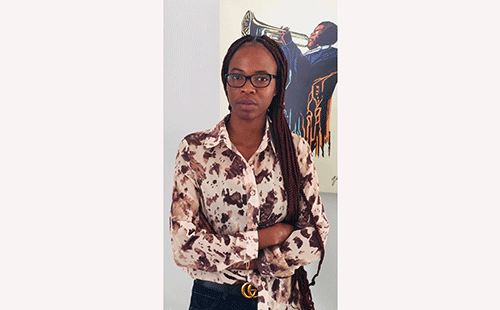As Achebe once remarked, “A fly that has no one to advise follows the corpse into the grave”, and as a contemporary society, we certainly also need not to be that fly. And this sacred duty is bestowed to a greater extent on our story-tellers who act as torchbearers, purveyors and light-bearers to help us avoid getting metaphorically blind to those life-giving values that make us human beings. Storytellers inform us of what is around them as they describe and read the world differently, and with writers we will know what is right and wrong. No wonder Achebe also said that “storytellers are a threat, they threaten all champions of control, they frighten usurpers of the right to freedom of the human spirits, in state, in church or mosque, in party congress, in the university or wherever”. It is in this same line of thought that our Namibian writers also serve as writers who seek to bring sight, enlightenment and conscientisation to the community by exposing the ills of society.
We thus talk of Chinua Achebe, Mariama Ba^, Tsitsi Dangarembga and our very own Jane Katjavivi (May her soul rest in peace), Molapong Keamogetsi, Sifiso Nyathi, Ellen Ndeshi Namhila, Vickson Tablah Hangula, to mention but a few, and our minds get filled with the ethos of what it means to be African. This is a form of communication that entertains, ridicules, chastises, illuminates and corrects as they articulate the unsaid and the unsayables in society. What really is a world without literature? A deep sense and love for beauty includes a strong passion for poetry, prose, music, art, drama and artistic capacities that we call art. Literature is not all about reading for fun, to kill time, or grasping a book because you are bored; it is more than that, as it teaches moral lessons. Our stories give the readers a sense of what is happening around them, and the ultimate goal is to educate, provide didacticism and make human society to be in sync with the universal laws and principles of human life. They equip the individual to see beyond what the five senses are able to grasp, and they also furnish him or her with deeper insights into the material and non-material word.
The author, fiction writer, is a critical and sensitive point of our society, being watchful over it so as to rebuke, give direction as well as instruct it to avoid any pitfalls that can actually derail society. Writers, authors, playwrights and storytellers are there to write about what was, what happened, what could have happened, what is happening, and what can happen. Therefore, storytellers in our communities are there to give direction, to illumine our parts, and also to give us a sense of direction so that we can know exactly where we are going. As a nation. We need these storytellers so that they can help us to guard against moral blindness, so that we do not end up being a world that is simply technologically-driven because when we are technologically-driven without being considerate of soft skills, without being considerate of Ubuntu, without being considerate of the arts and humanities, then we become not human beings but humanoids, some sort of creature who has a human semblance, or has a human form and yet does not have any feelings or emotion. Literature inculcates habits and attitudes that include integrity, humility, justice, charity, patience, honesty, sensitivity, fairness and Ubuntu.
Literature gives us a great sense of humour, as it talks about the present and the past, and teaches us how to accept the future. It tells us what we cannot see. Usually, writers are very sensitive persons who feel much deeper and see things more clearly, maybe even more clearly than a telescope. Writers write to express themselves and they also speak on behalf of the voiceless, and elucidate and educate what is right and wrong. Literature allows a person to step back in time and learn about life on Earth from the ones who walked before us. What better to allow someone to “live” through pre-colonial Africa, the colonial period, racism, gender-based violence, the medieval times, the period of slavery, the Cassinga massacre, you name it, than to just pop into a Windhoek bookshop and get yourself Achebe, Jackie Phamotse, Shakespeare, Namhila, Tagwira, etc. Authors write against blindness as they write for the blight in spirit, culture and morals to see; writers reveal everyday but hidden truths, and they bring darkness to light. And while the STEM fields definitely need to be promoted as they make life easier, at times, it is the arts and humanities that make us human for us to enjoy what the STEM fields produce for us. And what a blessing it is to grab a novel, a poetry anthology or a play, and drink from its immense and immeasurable riches of pure honey and gold. After all, “books may well be the only true magic”, says Alice Hoffman.


